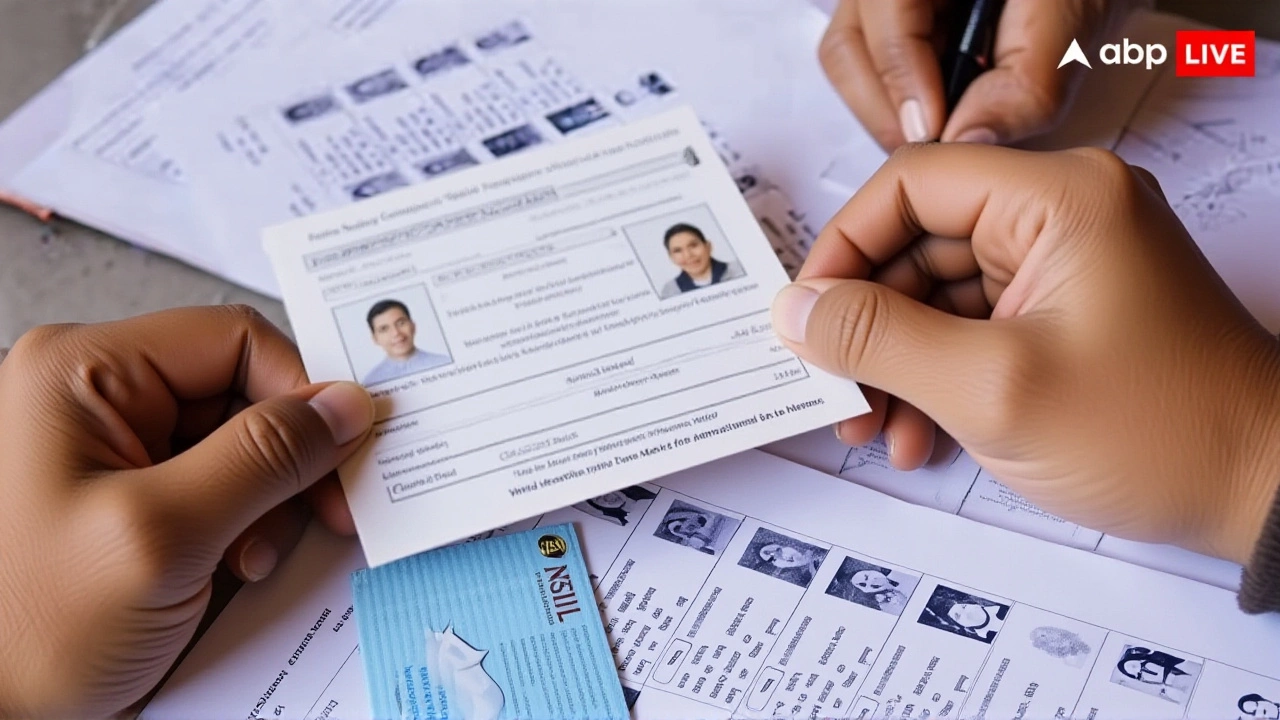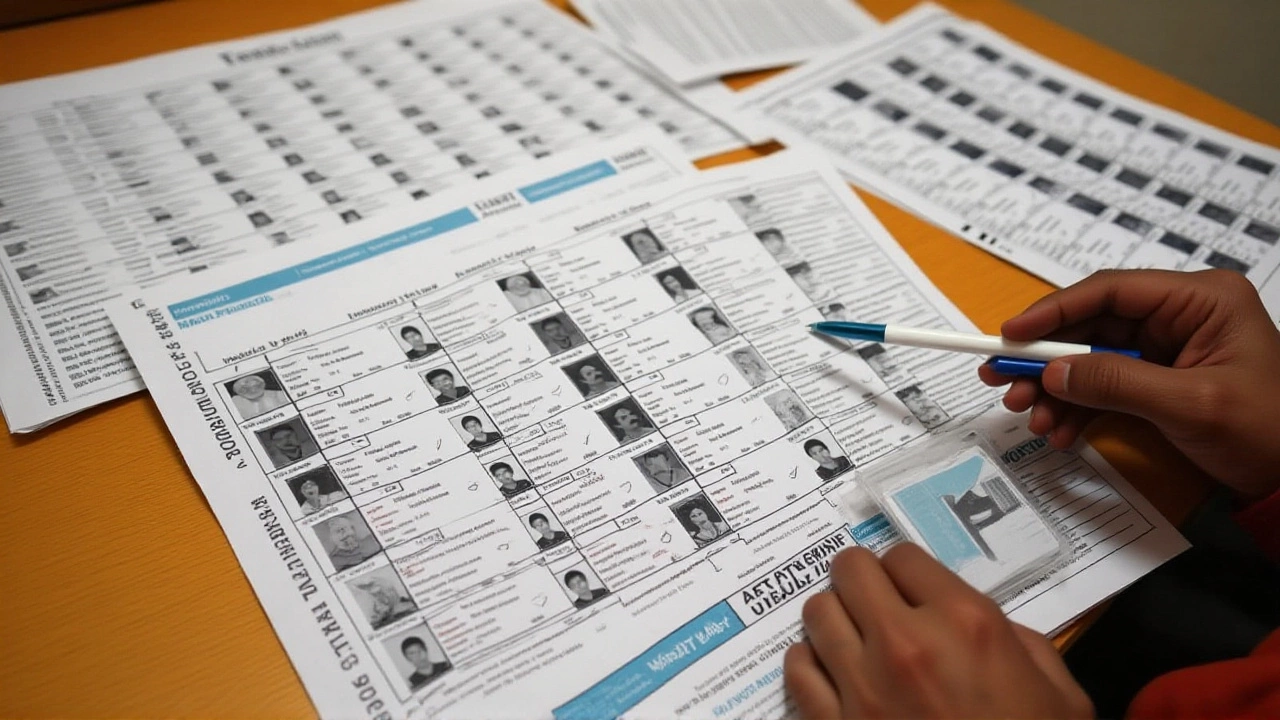When veteran socialist leader Jai Shankar Pandey stormed into a press conference in Kanpur on November 23, 2025, he didn’t mince words: "The Election Commission of India has become a silent accomplice to electoral fraud." His accusation came just hours after the final results of the Bihar elections were announced — results he claims were tainted by a botched, manipulated voter roll revision. What followed wasn’t just political outrage. It was a systemic alarm bell ringing across India’s democracy.
The SIR Scandal: Doorsteps or Tea Stalls?
The heart of Pandey’s complaint centers on the Special Intensive Revision (SIR) — a nationwide effort to update voter rolls ahead of next year’s general elections. The rules are clear: Booth Level Officers (BLOs) must deliver and collect forms door-to-door. No exceptions. No shortcuts. But in West Bengal, officials confirmed the Election Commission of India (ECI) issued show-cause notices to eight BLOs for handing out forms at tea stalls and local clubs. One officer reportedly handed out 147 forms in a single afternoon — all from a roadside stall. Not one at a home.That’s not just negligence. It’s sabotage. The entire point of SIR is to catch fake voters, dead people still on rolls, and duplicate entries — problems that only surface when someone knocks on your door, asks your name, checks your ID, and records your address. Doing it from a tea stall? That’s a photo op, not a verification.
The Bihar Model: A Fix That’s Being Ignored
The ECI’s solution? The so-called "Bihar Model." Since 2020, Bihar’s election machinery has achieved near-perfect form delivery rates by assigning each BLO a strict geographic patch — 100 homes, no more, no less — and requiring them to log every visit with timestamped photos. By November 23, 2025, Goa had hit 99.8% delivery under this model. Meanwhile, in West Bengal, reports from the Election Commission showed compliance rates below 65% in several districts.Why the gap? Training. Accountability. Or lack thereof. BLOs are often retired teachers, local volunteers, or even party loyalists with zero electoral training. The ECI now mandates one supervisor for every ten booths — a start. But in places like Patna and Kolkata, supervisors are overloaded, underpaid, and sometimes complicit.

Who’s Really Afraid of the Voter Roll?
The Trinamool Congress in West Bengal is preparing a dramatic move: an Assembly resolution condemning "alleged deaths and public panic" linked to the SIR process. They’re blaming the BJP for "manufacturing chaos" — a claim that’s unverified but politically explosive. Meanwhile, the BJP is firing back, accusing TMC BLOs of deliberately avoiding homes in opposition strongholds.Here’s the twist: the real victims aren’t parties. They’re ordinary citizens. NR Elango, a DMK MP and lawyer from Chennai, told reporters on November 18, "People are confused. BLOs don’t know how to fill forms. Elders are being told to come to the panchayat office — exactly what SIR was meant to stop."
And it’s not just Bengal. In Uttar Pradesh, villagers reported BLOs asking for "a small favor" before approving a name change. In Assam, elderly voters said they were removed from rolls after refusing to give their Aadhaar numbers — even though it’s not mandatory.
Twenty Years of Broken Promises
The Special Intensive Revision was first launched in 2003. Two decades later, The Daily Pioneer’s November 23 analysis found that voter rolls still contain 12.7 million suspected duplicate entries and 8.3 million unverified digital updates — figures that haven’t improved since 2015. Why? Manual inputs. Poor digitization. And worst of all — silence.Electoral Registration Officers (EROs) and District Election Officers (DEOs) rarely audit BLO records. A 2024 internal ECI audit showed that only 3% of BLO reports were cross-checked. That’s not oversight. That’s negligence dressed up as procedure.
The ECI’s new helpline — 1950 — and district control rooms sound good on paper. But in rural Jharkhand, the helpline doesn’t work after 6 PM. In Odisha, complaints vanish into a black hole. No one calls back. No one follows up.

What Happens Next?
The ECI has promised to release a public dashboard showing real-time SIR compliance rates by district — a first. But will they? The last time they promised transparency before the 2019 elections, the data was delayed by six months. And when it came out? It was incomplete.Meanwhile, Jai Shankar Pandey isn’t backing down. He’s filed a petition in the Patna High Court demanding a recount of 14 assembly seats in Bihar where SIR compliance fell below 50%. He’s also calling for the immediate suspension of all BLOs in districts where more than 20% of forms were collected outside homes.
What’s at stake? Not just Bihar’s results. But the credibility of every election in India. If voters can’t trust the list — the very foundation of democracy — then what’s left?
Frequently Asked Questions
How does the Special Intensive Revision (SIR) affect ordinary voters?
SIR is meant to remove fake names and add missing voters — but in practice, many citizens are being wrongly excluded because BLOs skip homes or demand unnecessary documents. In West Bengal, over 11,000 complaints were filed in October alone about people being told their names were "missing" from rolls — even though they’d voted in 2020. Without door-to-door verification, the system punishes the poor, the elderly, and the illiterate.
Why are tea stalls being used to distribute voter forms?
Tea stalls are convenient, low-risk locations for BLOs who are underpaid, overworked, or politically pressured. Some are told to meet targets quickly, not accurately. In districts where BLOs earn only ₹200 per day, delivering 100 forms door-to-door takes 3–4 days. At a tea stall, they can do 50 in an hour. It’s efficiency — but not integrity.
What’s the connection between Jai Shankar Pandey and the Bihar election results?
Pandey, a longtime socialist from Bihar, claims that in 14 constituencies where SIR compliance was below 50%, the winning margins were razor-thin — often under 2,000 votes. He argues that if fake voters were removed, results could have flipped. His petition isn’t about overturning the election — yet. It’s about exposing how the process was manipulated to preserve the status quo.
Is the Election Commission of India independent in this process?
Technically, yes. But in practice, state governments control BLO appointments, funding, and training. In West Bengal, most BLOs are nominated by the ruling party. The ECI has no power to replace them — only to issue show-cause notices, which are rarely enforced. Without real authority over ground-level personnel, the Commission’s oversight is symbolic.
What’s the risk if SIR fails before the 2026 general elections?
If voter rolls remain inaccurate, millions could be disenfranchised — or worse, fraudulently represented. In 2019, over 1.8 million voters in Uttar Pradesh were removed from rolls without notice. If this repeats in 2026, we could see mass protests, court battles, and international scrutiny. The credibility of India’s largest democratic exercise hangs in the balance.
Can citizens verify if they’re on the correct voter roll?
Yes — but it’s not easy. Voters can check their status at electoralsearch.in, but the site is slow, often down, and doesn’t show why a name was removed. A better option is visiting the nearest Electoral Registration Office with ID proof. Still, many rural voters don’t know this exists. And even when they do, they’re often turned away without answers.
